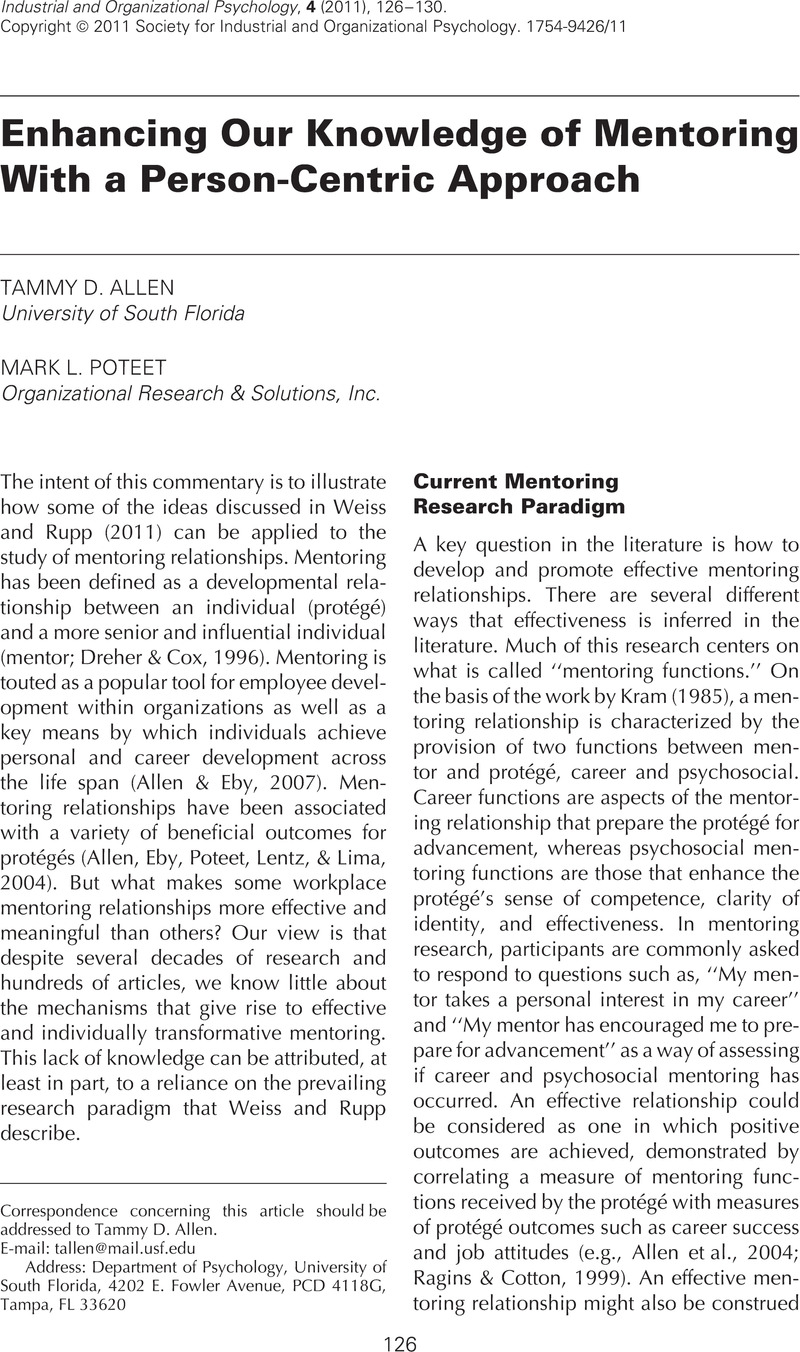Crossref Citations
This article has been cited by the following publications. This list is generated based on data provided by Crossref.
Weiss, Howard M.
and
Rupp, Deborah E.
2011.
Envisioning a Person-Centric Work Psychology.
Industrial and Organizational Psychology,
Vol. 4,
Issue. 1,
p.
138.
Salvato, Carlo
and
Corbetta, Guido
2013.
Transitional Leadership of Advisors as a Facilitator of Successors’ Leadership Construction.
Family Business Review,
Vol. 26,
Issue. 3,
p.
235.
Wong, Lilian C. J.
Wong, Paul T. P.
and
Ishiyama, F. Ishu
2013.
What Helps and What Hinders in Cross-Cultural Clinical Supervision.
The Counseling Psychologist,
Vol. 41,
Issue. 1,
p.
66.
Fullick-Jagiela, Julia M.
Verbos, Amy Klemm
and
Wiese, Christopher William
2015.
Relational Mentoring Episodes as a Catalyst for Empowering Protégés.
Human Resource Development Review,
Vol. 14,
Issue. 4,
p.
486.
van Ginkel, Gisbert
Oolbekkink, Helma
Meijer, Paulien C.
and
Verloop, Nico
2016.
Adapting mentoring to individual differences in novice teacher learning: the mentor’s viewpoint.
Teachers and Teaching,
Vol. 22,
Issue. 2,
p.
198.
Jongen, Crystal
McCalman, Janya
Bainbridge, Roxanne
and
Clifford, Anton
2018.
Cultural Competence in Health.
p.
49.
Jongen, Crystal
McCalman, Janya
and
Bainbridge, Roxanne
2018.
Health workforce cultural competency interventions: a systematic scoping review.
BMC Health Services Research,
Vol. 18,
Issue. 1,
Kraiger, Kurt
Finkelstein, Lisa M.
and
Varghese, Lebena S.
2019.
Enacting Effective Mentoring Behaviors: Development and Initial Investigation of the Cuboid of Mentoring.
Journal of Business and Psychology,
Vol. 34,
Issue. 4,
p.
403.
Liu, Yunshuo
Ye, Long
and
Guo, Ming
2021.
Does formal mentoring impact safety performance? A study on Chinese high-speed rail operators.
Journal of Safety Research,
Vol. 77,
Issue. ,
p.
46.
Yip, Jeffrey
and
Walker, Dayna O. H.
2022.
Leaders mentoring others: the effects of implicit followership theory on leader integrity and mentoring.
The International Journal of Human Resource Management,
Vol. 33,
Issue. 13,
p.
2688.
Xu, Shuang
Yang, Zheng
Liu, Pingqing
and
Yang, Fang
2023.
How does mentoring affect mentees innovation behavior: The role of self-expansion and social face consciousness.
Current Psychology,
Vol. 42,
Issue. 21,
p.
18341.



